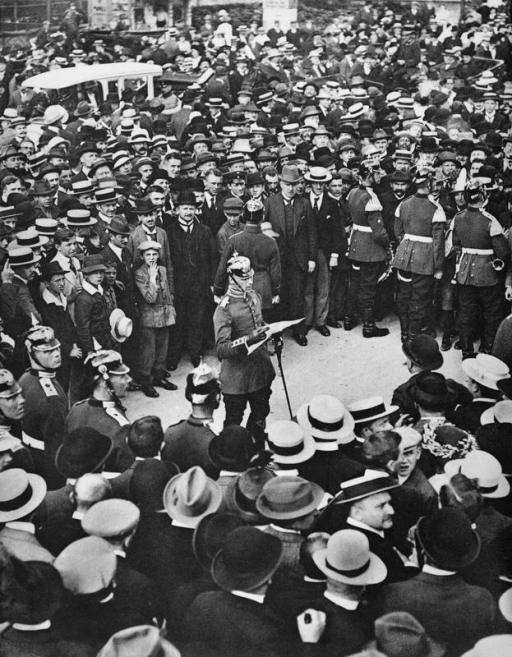In response to Russia’s partial, and then general mobilisation on the 29th July 1914, Germany declared war on the Russian Empire on the 1st August 1914.
Her partial mobilisation, Russia insisted, had been directed at Austria-Hungary, after Austria-Hungary declared war on Serbia on the 28th July 1914.
A flurry of diplomatic cables across Europe, and between the cousins Kaiser Wilhelm II of Germany and Tsar Nicholas II of Russia, were unable to avert the conflict.
Germany had demanded that Russia cease mobilising on the 31st July, which was not fulfilled.
By the 1st August, both France and Germany had ordered their forces to mobilise.
Germany declares war
On the 1st August, the German Ambassador to St. Petersburg presented a declaration of war to the Russians:
“The Imperial German Government have used every effort since the beginning of the crisis to bring about a peaceful settlement. In compliance with a wish expressed to him by His Majesty the Emperor of Russia, the German Emperor had undertaken, in concert with Great Britain, the part of mediator between the Cabinets of Vienna and St. Petersburg; but Russia, without waiting for any result, proceeded to a general mobilisation of her forces both on land and sea”.
“In consequence of this threatening step, which was not justified by any military proceedings on the part of Germany, the German Empire was faced by a grave and imminent danger. If the German Government had failed to guard against this peril, they would have compromised the safety and the very existence of Germany”.
“The German Government were, therefore, obliged to make representations to the Government of His Majesty the Emperor of All the Russias and to insist upon a cessation of the aforesaid military acts. Russia having refused to comply with this demand, and having shown by this refusal that her action was directed against Germany, I have the honour, on the instructions of my Government, to inform your Excellency as follows:
His Majesty the Emperor, my august Sovereign, in the name of the German Empire, accepts the challenge, and considers himself at war with Russia”.
The few days between Austria-Hungary’s declaration of war on Serbia and Germany’s declaration of war on Russia have provoked intense academic debate and discussion of the diplomatic cables which flooded Europe in the hours before war, often in the context of who was to “blame” for the conflict.
Italian neutrality
Italy, a signatory of the Triple Alliance with Germany and Austria-Hungary, declared its neutrality on the same day.
The Italians stated that the brewing conflict was aggressive on Austria-Hungary’s part, and that the Triple Alliance was defensive in nature. As such, Italy was not bound to honour the treaty in an aggressive conflict.
